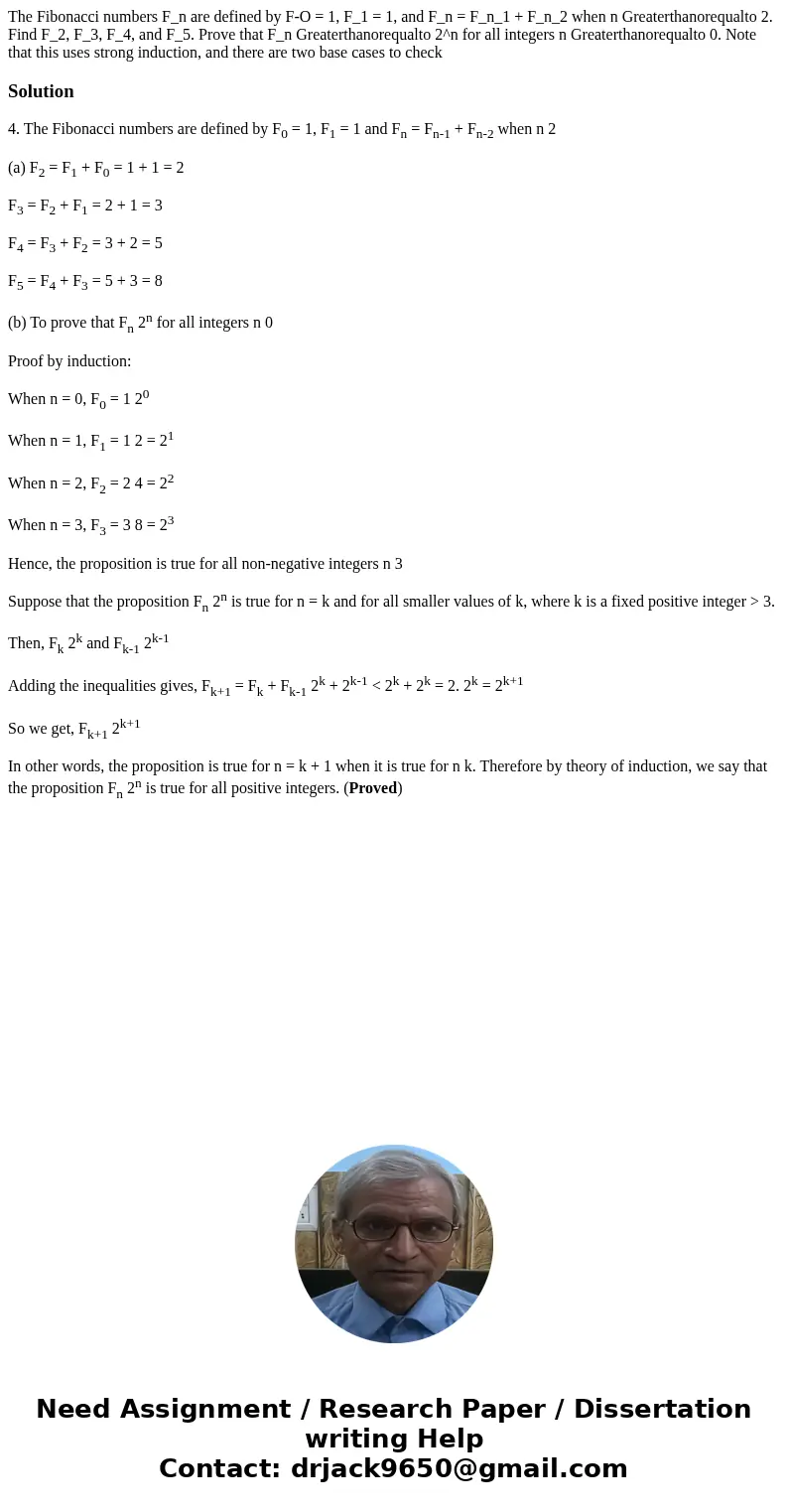The Fibonacci numbers Fn are defined by FO 1 F1 1 and Fn
Solution
4. The Fibonacci numbers are defined by F0 = 1, F1 = 1 and Fn = Fn-1 + Fn-2 when n 2
(a) F2 = F1 + F0 = 1 + 1 = 2
F3 = F2 + F1 = 2 + 1 = 3
F4 = F3 + F2 = 3 + 2 = 5
F5 = F4 + F3 = 5 + 3 = 8
(b) To prove that Fn 2n for all integers n 0
Proof by induction:
When n = 0, F0 = 1 20
When n = 1, F1 = 1 2 = 21
When n = 2, F2 = 2 4 = 22
When n = 3, F3 = 3 8 = 23
Hence, the proposition is true for all non-negative integers n 3
Suppose that the proposition Fn 2n is true for n = k and for all smaller values of k, where k is a fixed positive integer > 3.
Then, Fk 2k and Fk-1 2k-1
Adding the inequalities gives, Fk+1 = Fk + Fk-1 2k + 2k-1 < 2k + 2k = 2. 2k = 2k+1
So we get, Fk+1 2k+1
In other words, the proposition is true for n = k + 1 when it is true for n k. Therefore by theory of induction, we say that the proposition Fn 2n is true for all positive integers. (Proved)

 Homework Sourse
Homework Sourse